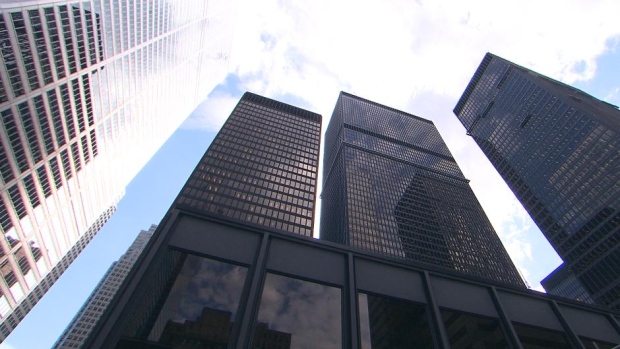Mar 17, 2017
Why Bay Street is warning Ottawa against raising tax on capital gains

Instead of asking just the wealthiest Canadians to pay more, Bay Street believes it would be better for Ottawa to increase taxes on everyone.
As the Liberal government prepares to table its second federal budget next week, many Canadian investors are worried the document could include plans to increase the capital gains tax. Stephen Jarislowsky, the billionaire investor and founder of Montreal-based Jarislowsky Fraser, believes such a move would run counter to Ottawa’s long-stated focus on job creation.
“We are trying to rebuild our economy and I don’t think you can rebuild your economy by chasing people away who can deliver jobs and build corporations,” Jarislowsky told BNN in an interview this week.
Some of the best and brightest minds on Bay Street happen to agree. In a survey of investors who regularly provide expert analysis and advice on BNN’s Market Call and Market Call Tonight programs, fully half of respondents (11 of 22) cited an increase to capital gains taxes as being the most damaging to Canadian competitiveness of all potential taxes.
The result is especially noteworthy given respondents had free reign to respond as they saw fit, as opposed to being given a pre-selected list of responses from which to choose. Asked what tax change they would recommend Ottawa use as a means of boosting revenue while not hurting competitiveness, the same proportion of respondents (11 of 22) volunteered some version of a higher consumption tax; most commonly via an increase to the government sales tax.
While the government has not publicly suggested it is looking to increase the current capital gains tax inclusion rate of 50 per cent – meaning half of any investment gains are considered part of an individual’s taxable income – there is widespread concern of the inclusion rate potentially growing as high as 80 per cent, which critics argue would decrease incentives to invest in Canada.
“Moreover,” Jarislowsky argued, “the existing entrepreneurs will say, ‘Why stay in Canada if I’m going to be taxed not only 52 per cent which I’m already taxed, but I’m going to be taxed higher than that?”
“There’s no reason for them to stay,” he said.
Capital gains taxes only matter to the small number of Canadians holding appreciated investments in non-registered accounts. The vast majority of Canadians who invest in registered accounts like RRSPs, RESPs or TFSAs pay no tax on gains.
If the federal government’s central goal is to raise more revenue, Craig Alexander argues Ottawa can achieve that while maintaining existing rates for both capital gains and consumption taxes. The key, according to the Conference Board of Canada’s chief economist, is doing a better job of collecting taxes already owed.
WEIGH IN

What’s the most harmful option for Canada if Ottawa wants to generate more tax revenue?
“Much foregone tax revenue is out there either due to tax avoidance or just incomplete or incorrect submissions,” Alexander told BNN via telephone Friday. “Our estimates are there are billions of dollars of tax revenues that aren’t being collected that could be… by improving tax collection and tax enforcement.”
“There is money out there that is being left on the table,” Alexander said.
However, many respondents to the BNN survey believe there is an additional benefit to bumping up consumption taxes: increasing the GST would help the government address the trend of many Canadians borrowing money at historic rates.
“It is an economic truism that if you want less of something, tax it, and if you want more of something subsidize it,” said Brian Madden, senior vice-president and portfolio manager at Goodreid Investment Counsel. “So, Canada should increase the [sales tax] and partially offset this with lower corporate and personal income taxes.”
“Canada has too much consumption, fueled by dangerous levels of household debt and not enough production and investment in productive capital.”
Increasing the tax rate on capital gains means Canada will “under invest in capital goods, as is reflected by our poor productivity stats,” warned Jerome Hass, portfolio manager at Lightwater Partners.
“No need to make the problem worse.”





